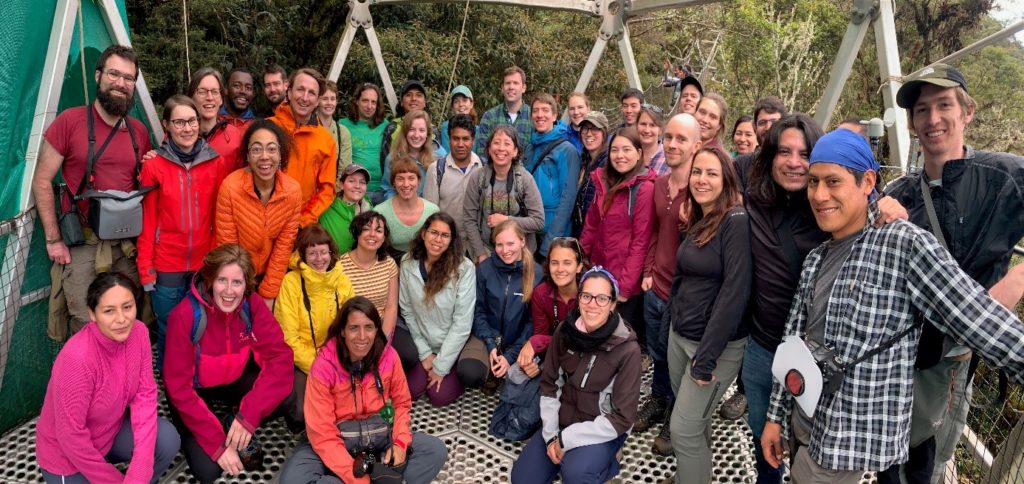On March 8, 2020, 48 students and teachers from 18 countries and four continents met in Cuzco, Peru. We looked forward to participating in and running the 5th International Plant Functional Traits Field Course (PFTC5). In the PFTC field courses, students learn a range of plant functional traits approaches to climate and global change ecology, and as we believe in ‘learning by doing’, we collect real publishable datasets that the students later participate in writing up for scientific publications. For some of us, this was the fifth time we taught this course, and we had a good feeling for this year’s course: We were confident that we had a good, content-rich and, not least, useful course to offer the students. The course is part of several educational development projects funded by DIKU, and we have worked purposefully with developing both academic content and general skills training aspects of the course. As examples of the latter, the course focuses on the importance of open data and reproducibility in science, and we anchor the course in the local ecological and societal context by prioritizing students from the region in which the course is arranged, whether it is in South America, China, or Norway. At the request of previous year’s students, we also have a module where the students communicate with the local people about climate and climate change, as you can read about in this article.
There were a lot of applicants on the course this year, and this had given us the opportunity to select an excellent and diverse group of students who had in common that they were motivated, and needed, to learn more about functional approaches in ecology. We were looking forward to meeting them and working with them!
Of course, we were concerned about the Coronavirus situation, but in the weeks before we left, there were no recorded cases in Peru, and although the situation was severe in a few countries in Europe and Asia, we did not foresee that the situation would or could change dramatically during the two weeks our course was planned to last. Neither did UIB, and we got ‘all clear to go’.

Participants at the 5th International Plant Functional Traits course visiting a large-scale field experiment at the Wayqecha Field station – on day three of the course.
Little did we know. Four days after arrival, we were informed that all flights to Europe would be canceled a few days later, and Europeans were asked to return home as soon as possible. Before a week had passed, the Peruvian president announced the state of emergency and closed the borders for all, at 24 hours notice.
This was the beginning of some nerve-wracking and exhausting weeks. About half of the participants got out of Peru before the borders closed. The rest remained in Cuzco, waiting for their home countries to arrange transport. There was a lot to deal with, practically and mentally, both for those who were able to travel and for those who had to stay. At the same time, it was impressive to see how well the group actually tackled this unpredictable situation. The participants took care of each other, helped each other, and we actually managed to keep the course and science going. The latter might sound like a strange priority, but it meant that we had something meaningful to do, in addition to wait and communicate with embassies and airlines. The learning outcomes were arguably a bit different from what we had initially planned, but having something sensible to do was a big help, both for those who remained in Peru and for those who eventually came home. Here you can read the students’ blogs, written before and after the course, which summarize both expectations and experiences.
But it was not only the pandemic itself and our internal group dynamics that offered unexpected experiences. It soon became clear that our home institutions had very different approaches to the situation. While some took responsibility immediately and set heaven and earth in motion to bring their students and staff home, others were content with wishing them “good luck”. In this article we summarize some of our experience and provide some insights on how we think institutions should respond in such situations.
The next course is scheduled for South Africa in December 2021. We hope and wish that we will be able to carry it through, and that the global situation will be less dire than it is now. But if something dramatic does happen, we’ll be much better prepared to tackle it!

1 comment for “Fieldwork in Peru as the pandemic hit”